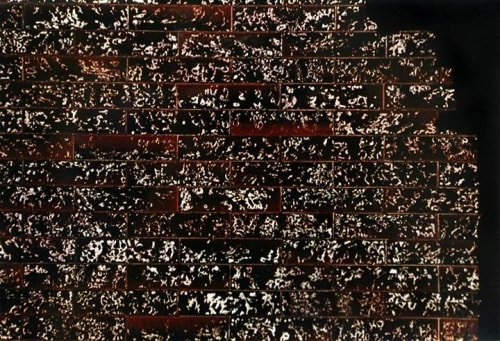American photographer Arthur Siegel (1913-1978) cultivated new ways of the photographic process and further education in the medium. Siegel was a man of the experimental process, pushing the way color and light can be captured through the lens. He often combined his documentary process with his creativity, creating abstract photojournalist images. Using light and color, he attempted to push the boundaries of his compositions, blending techniques to produce avant-garde images of objects or scenes that revolved around a single element of photographic art.
Born in Detroit, Michigan, Siegel began his introduction to the arts when he attended The Institute of Design at the Armour Institute of Technology in 1937. Around this time, his photographic career began as a photojournalist at the New York Times. After several years of working for the Office of War Information, The U.S. Army Corps, and the Farm Security Administration, he received an invitation from László Moholy-Nagy to head and teach at the photography department at the Institute of Design. After a couple of years, he resigned in 1949 to return to focusing on working in commercial photography and expanding his research in color photography. During this time, he also engaged in several photojournalism projects and wrote several essays on image-making. In 1967, he was rehired by Aaron Siskind to be the chair of the department at the Institute, where he held the position until his death.
His work was featured in The Art Institute of Chicago's Gallery 10 permanent collection in 2015 and a one-man show in 1952; he was also in Images of American Exhibit in 1955; in 2018, the Tate Modern featured him in an exhibition "Shape of Light: 100 Years of Photography and Abstract Art", and in 2019 Robert Koch Gallery featured him in an exhibition "György Kepes: New Bauhaus in America."
-
 Arthur SiegelRight of Assembly, 1939Gelatin silver contact print, printed c. 19394 x 5 in (10.2 x 12.7 cm)
Arthur SiegelRight of Assembly, 1939Gelatin silver contact print, printed c. 19394 x 5 in (10.2 x 12.7 cm) -
 Arthur SiegelUntitled (More Welders Work on the Hatch Assembly), 1943Gelatin silver print, printed c. 19435 5/8 x 7 5/8 in (14.3 x 19.4 cm)
Arthur SiegelUntitled (More Welders Work on the Hatch Assembly), 1943Gelatin silver print, printed c. 19435 5/8 x 7 5/8 in (14.3 x 19.4 cm)
Sheet: 8 x 10 in -
 Arthur SiegelUntitled, 1949Gelatin silver photogram, printed c. 194914 x 11 in (35.5 x 27.9 cm)
Arthur SiegelUntitled, 1949Gelatin silver photogram, printed c. 194914 x 11 in (35.5 x 27.9 cm) -
 Arthur SiegelUntitled, 1949Gelatin silver photogram, printed c. 194916 x 20 in (40.64 x 50.8 cm)
Arthur SiegelUntitled, 1949Gelatin silver photogram, printed c. 194916 x 20 in (40.64 x 50.8 cm) -
 Arthur SiegelUntitled (Wrapped Statue), 1949Dye transfer print mounted to board, printed c. 19499 3/4 x 8 in (24.8 x 20.3 cm)
Arthur SiegelUntitled (Wrapped Statue), 1949Dye transfer print mounted to board, printed c. 19499 3/4 x 8 in (24.8 x 20.3 cm) -
 Arthur SiegelUntitled (Fireplug and Umbrella), 1950, printed c. 1950'sVintage dye transfer print6 1/2 x 9 1/2 in (16.4 x 24.1 cm)
Arthur SiegelUntitled (Fireplug and Umbrella), 1950, printed c. 1950'sVintage dye transfer print6 1/2 x 9 1/2 in (16.4 x 24.1 cm) -
 Arthur SiegelCeramic Brick, no. 13, 1951Dye transfer print, printed c. 19516 1/2 x 9 1/2 in (16.5 x 24.1 cm)
Arthur SiegelCeramic Brick, no. 13, 1951Dye transfer print, printed c. 19516 1/2 x 9 1/2 in (16.5 x 24.1 cm)
-
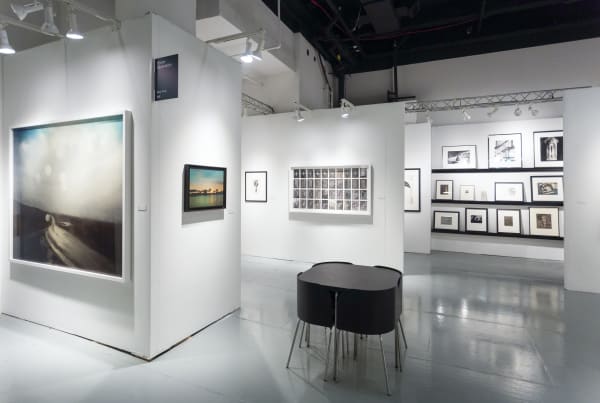
AIPAD 2023
30 Mar - 2 Apr 2023Read more -
PARIS PHOTO 2021
11 - 14 Nov 2021Read more -
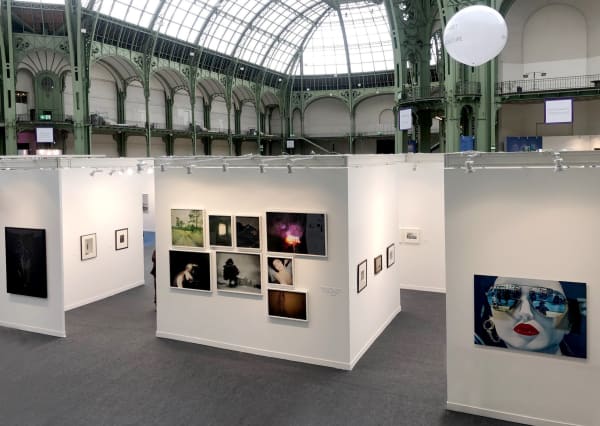
PARIS PHOTO 2019
7 - 10 Nov 2019Bruce Silverstein Gallery is pleased to present an exhibition that will include both iconic and lesser known photographs by some of the most important photographic...Read more -
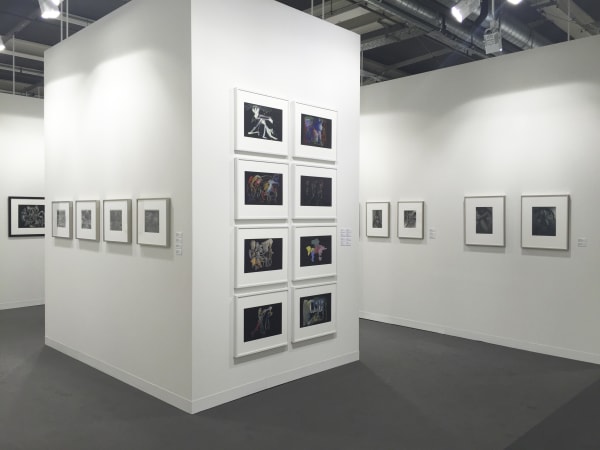
ART BASEL 2016
16 - 19 Jun 2016Read more -
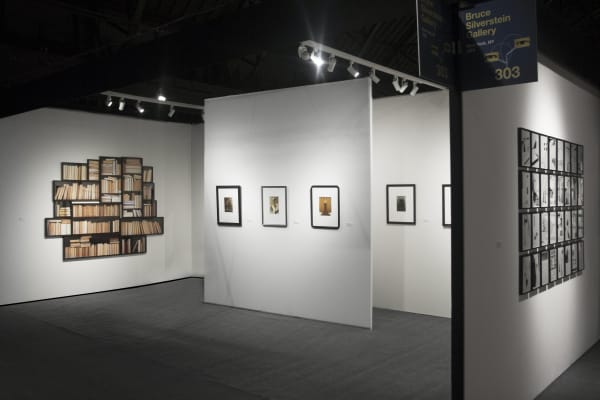
AIPAD 2016
14 - 17 Apr 2016At the 2016 AIPAD Photography Show, Bruce Silverstein Gallery is proud to present Triumph of the Egg, featuring works of the same title by two...Read more -
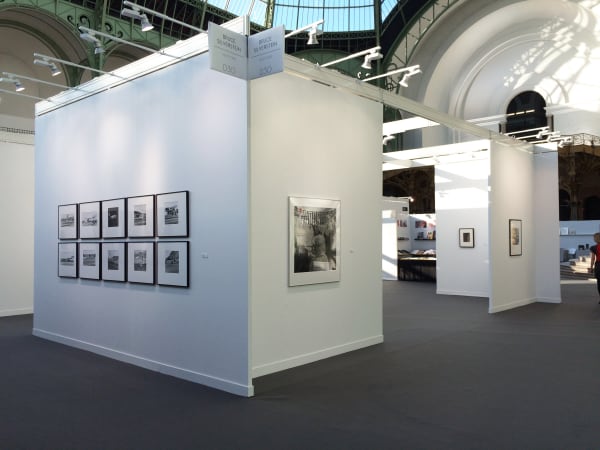
PARIS PHOTO 2015
12 - 15 Nov 2015Read more -
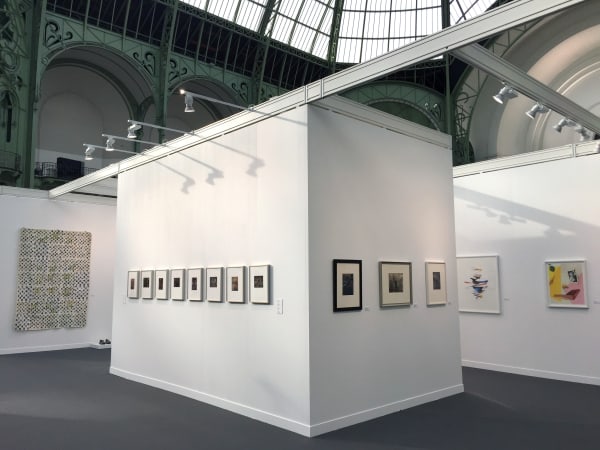
PARIS PHOTO 2014
13 - 16 Nov 2014Read more -

Frieze Masters 2014
15 - 19 Oct 2014For Frieze Masters 2014 Bruce Silverstein Gallery proposes a solo exhibition of the work of Keith Smith, an American artist active in the 1960s-80s. This...Read more -
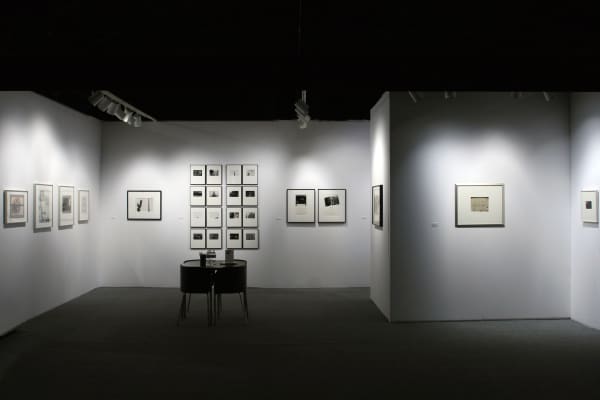
AIPAD 2014
10 - 13 Apr 2014Read more -

ART BASEL MIAMI 2013
5 Dec 2013 - 8 Dec 2015For Art Basel Miami Beach, Bruce Silverstein Gallery proposes an exhibition of rare vintage prints from the Equivalents series 1925-34, created by the artist and...Read more -

PARIS PHOTO 2013
14 - 17 Nov 2013Read more -
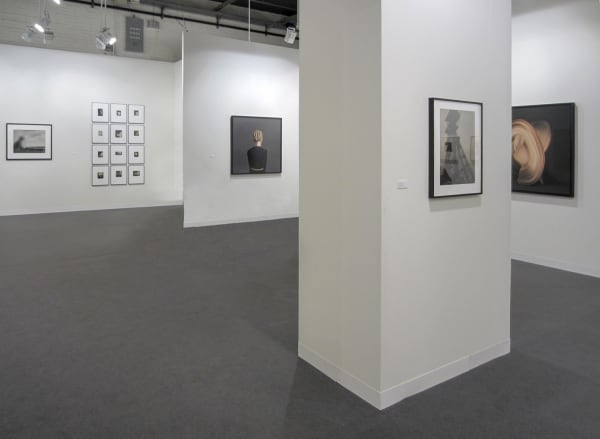
ART BASEL 2013
13 - 16 Jun 2013For Art Basel 44 Bruce Silverstein Gallery would be pleased to present an exhibition of masterworks from the photographic medium. We will be featuring historically...Read more -
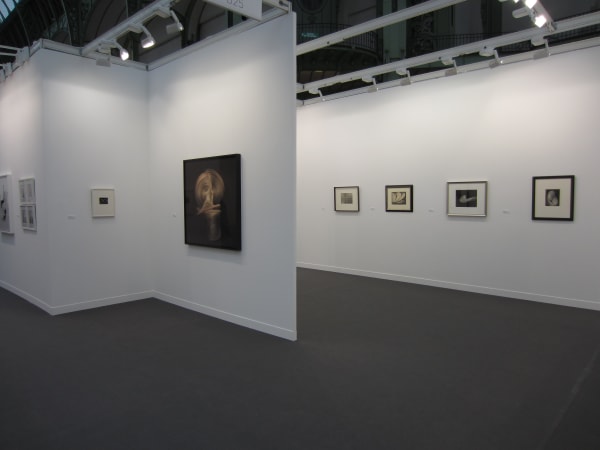
PARIS PHOTO 2012
15 - 18 Nov 2012Read more -

FRIEZE MASTERS 2012
11 - 14 Oct 2012For Frieze Masters 2012, Bruce Silverstein Gallery proposes an exhibition of photographic works by the renowned artists Constantin Brancusi, André Kertész and Aaron Siskind that...Read more -

PARIS PHOTO 2011
10 - 13 Nov 2011For Paris Photo 2011, Bruce Silverstein Gallery proposes an exhibition exploring the notion of form as subject. We will display works by André Kertész, Edward...Read more -

ART BASEL 2011
15 - 19 Jun 2011For Art Basel 42, Bruce Silverstein Gallery would be pleased to present an exhibition of photographic works by the world famous sculptor Constantin Brancusi. The...Read more -

AIPAD 2011
17 - 20 Mar 2011Read more
